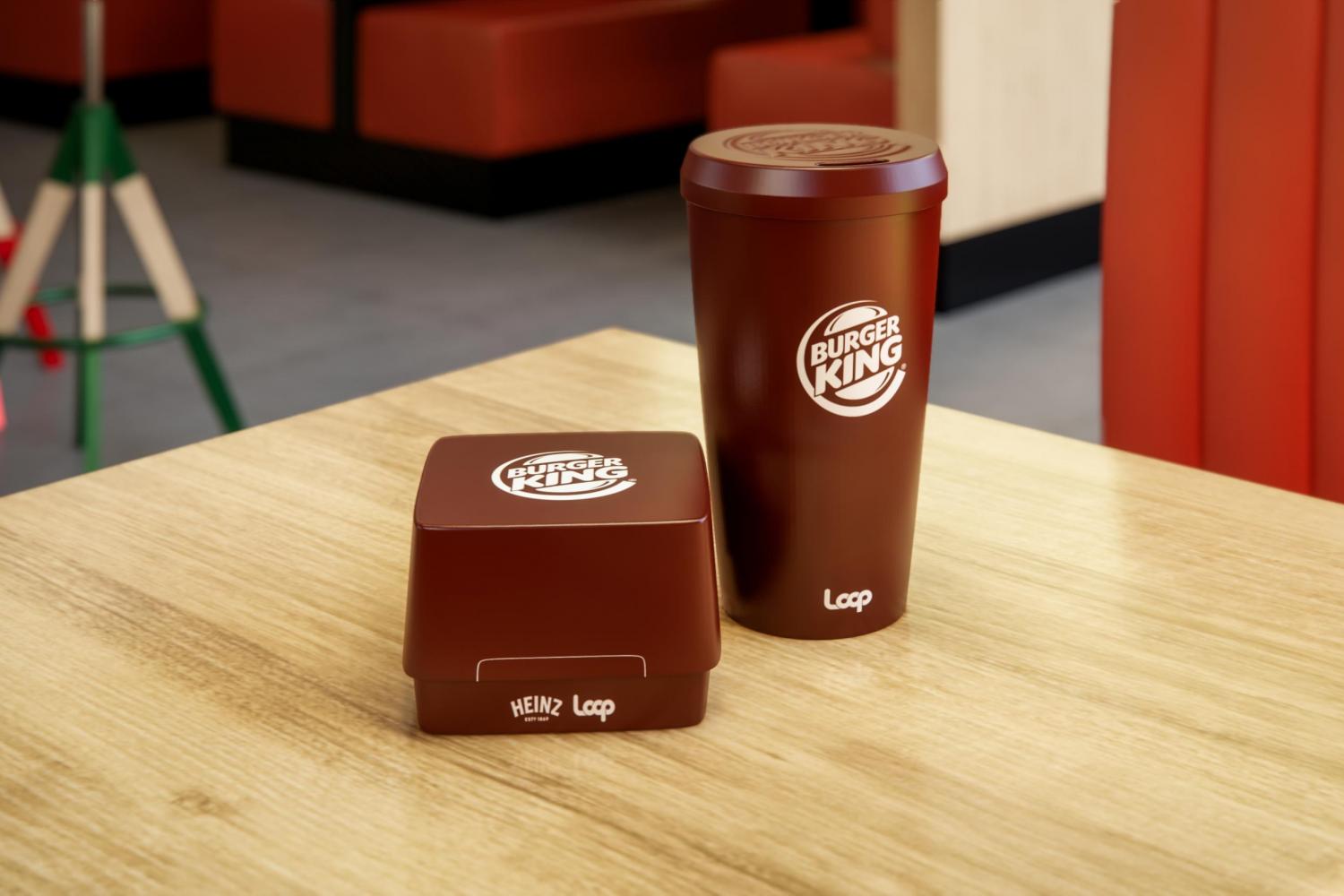Triple Pundit,
Last year, an Impossible Whopper — next year, reusable packaging? Burger King has been leading the charge on food service sustainability and is now taking a step into the circular economy. The fast food chain announced earlier this month that it will begin offering reusable packaging, starting next year. A trial will begin at select restaurants in New York, Portland and Tokyo for sandwiches and drinks.
Making this move possible is Burger King’s partnership with TerraCycle’s Loop initiative, which facilitates corporate transitions to reusable packaging.
The trial is part of Burger King’s goal to source all packaging from renewable, recyclable or certified sources by 2025. And this step forward couldn’t have come at a better time, as many restaurants have resorted to single-use options during the coronavirus pandemic.
Easy, reliable reusability with Loop
Burger King isn’t alone in joining Loop and striving to find its niche in a circular economy. Last month, McDonald’s announced it would be testing reusable cups in the United Kingdom next year. Coffee chains on both sides of the Atlantic Oceans have also experimented with rolling out reusable cups.
Loop, currently available in the United States, France and the United Kingdom, makes reusability doable by creating practical, even enhanced, packaging designs and providing a sanitizing system that rivals the sterility of single-use options, Heather Crawford, Loop’s global VP of marketing and e-commerce, told TriplePundit earlier this year.
Though 2021 will start with a trial, Burger King is confident in Loop’s system, and hopes it will encourage a transformation in the industry.
“As part of our Restaurant Brands for Good plan, we’re investing in the development of sustainable packaging solutions that will help push the food service industry forward in reducing packaging waste,” Matthew Banton, Head of Innovation and Sustainability, Burger King Global, said in a statement. “The Loop system gives us the confidence in a reusable solution that meets our high safety standards, while also offering convenience for our guests on the go.”
Customers who request reusable packaging at participating stores will be charged a deposit and encouraged to claim their refund by returning the cups and boxes to an in-restaurant collection system where they will be safely sanitized.
Cleaning cups, engaging customers with the circular economy
Burger King’s push for reusability has the potential to make a dent on the plastic waste crisisthreatening the oceans, but it can also engage consumers in a new way. Reuse: Rethinking Packaging, a book from the Ellen MacArthur Foundation, highlights how deposit and reward schemes can increase brand loyalty. The book also notes how an improved design can improve customer experience, especially as reusable containers are more durable and potentially more leak-proof.
Data has also revealed the revenue potential in sustainability. Half of the growth consumer packaged goods (CPG) saw between 2013 and 2018 came from sustainability-marketed products, according to research from NYU Stern’s Center for Sustainable Business, using data from market research company IRI.
Currently, food and packaging collectively account for almost 45 percent of landfilled waste in the U.S., according to the U.S. Environmental Protection Agency. Fast food, by its very nature, has contributed massive amounts to this accretion, especially as containers are rarely getting recycled.
Reusability almost sounds like an oxymoron in the context of fast food — that is, until Loop entered the picture, making reusability fast in its own way, and showing that innovation unlocks new views of the circular economy. Restaurants like Burger King are helping to bring the milk man to the 21st century — the land, the climate and the ocean will thank us for buying in.







